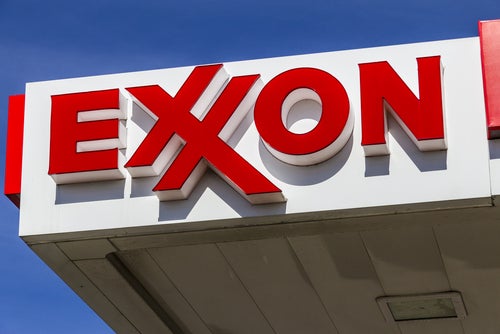
Exxon Mobil has purchased drilling rights in Arkansas in the south of the US, believed to be rich in lithium deposits. The move is part of the growing migration of oil majors towards critical minerals.
Lithium is frequently used in the manufacture of electric vehicle (EV) batteries and storage batteries for variable power sources such as wind and solar.
According to the International Energy Agency (IEA), lithium demand is expected to increase by almost 90% over the next two decades, in a scenario which meets the goals of the Paris climate agreement. The body predicts that the world will need to mine more than 26 times more lithium by 2050 than it did in 2021.
Sources from Exxon told the Wall Street Journal that the shift suggests an acknowledgement that demand for internal combustion engines is waning.
Exxon paid more than $100m for 120,000 gross acres in the Smackover formation of southern Arkansas to the exploration company Galvanic Energy. The region is known to have brine rich in lithium.
Growth in the battery industry
Lithium-ion (Li-ion) batteries are currently the most widely used type of battery despite recent developments in condensed batteries, notably by Chinese manufacturer CATL. According to global energy advisor with EY, Serge Colle, Li-ion batteries will remain the most popular. Speaking with Power Technology, he attributed this to a lower price point.
How well do you really know your competitors?
Access the most comprehensive Company Profiles on the market, powered by GlobalData. Save hours of research. Gain competitive edge.

Thank you!
Your download email will arrive shortly
Not ready to buy yet? Download a free sample
We are confident about the unique quality of our Company Profiles. However, we want you to make the most beneficial decision for your business, so we offer a free sample that you can download by submitting the below form
By GlobalDataExxon made a total profit of $56bn in 2022, making the recent acquisition a relatively small investment. Exxon has also invested in developing its EV charging network. According to Colle, half a million new EV chargers will be needed every year up to 2030 and a million every year after that.
Exxon, as a member of the Oil and Gas Climate Initiative along with other oil majors, has created a $1bn investment package to invest in companies in the battery space.
Argentina’s state oil company, YPF, is prospecting lithium deposits in the east of the country and plans to build a lithium-battery manufacturing plant. Oil major BP has also invested in Li-ion battery manufacturer StoreDot.
Additionally, a subsidiary of Occidental Energy TerraLithium is developing technology to extract lithium from underground brine. Pioneer Natural Resources is also researching the feasibility of pulling lithium from oil field wastewater.
The US Government plans to end the purchase of fossil fuel-powered vehicles by 2035, reducing government operated emissions by 65% by 2030. EU lawmakers voted to approve a law in February that would effectively ban the sale of fossil fuel-powered cars. The bloc plans to make the transport sector carbon-neutral by 2050.



